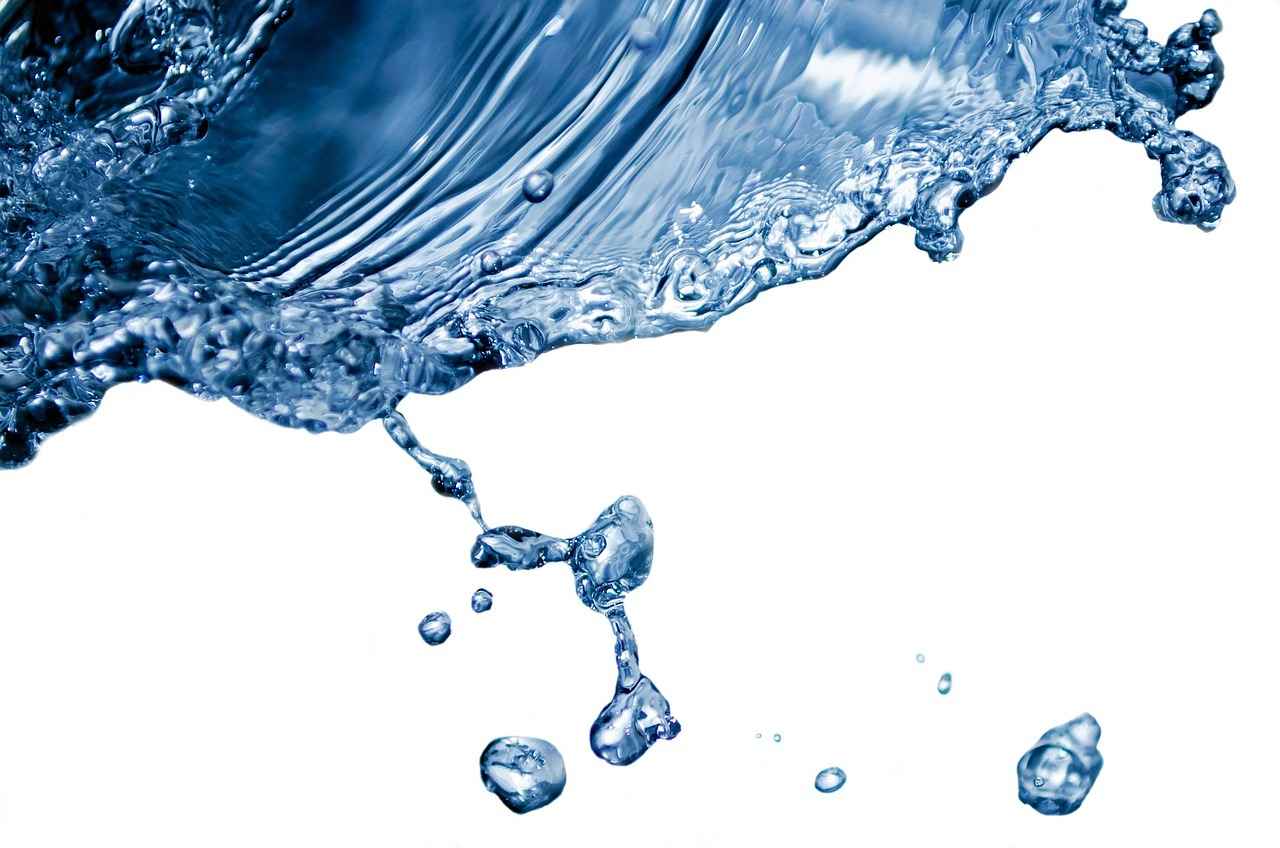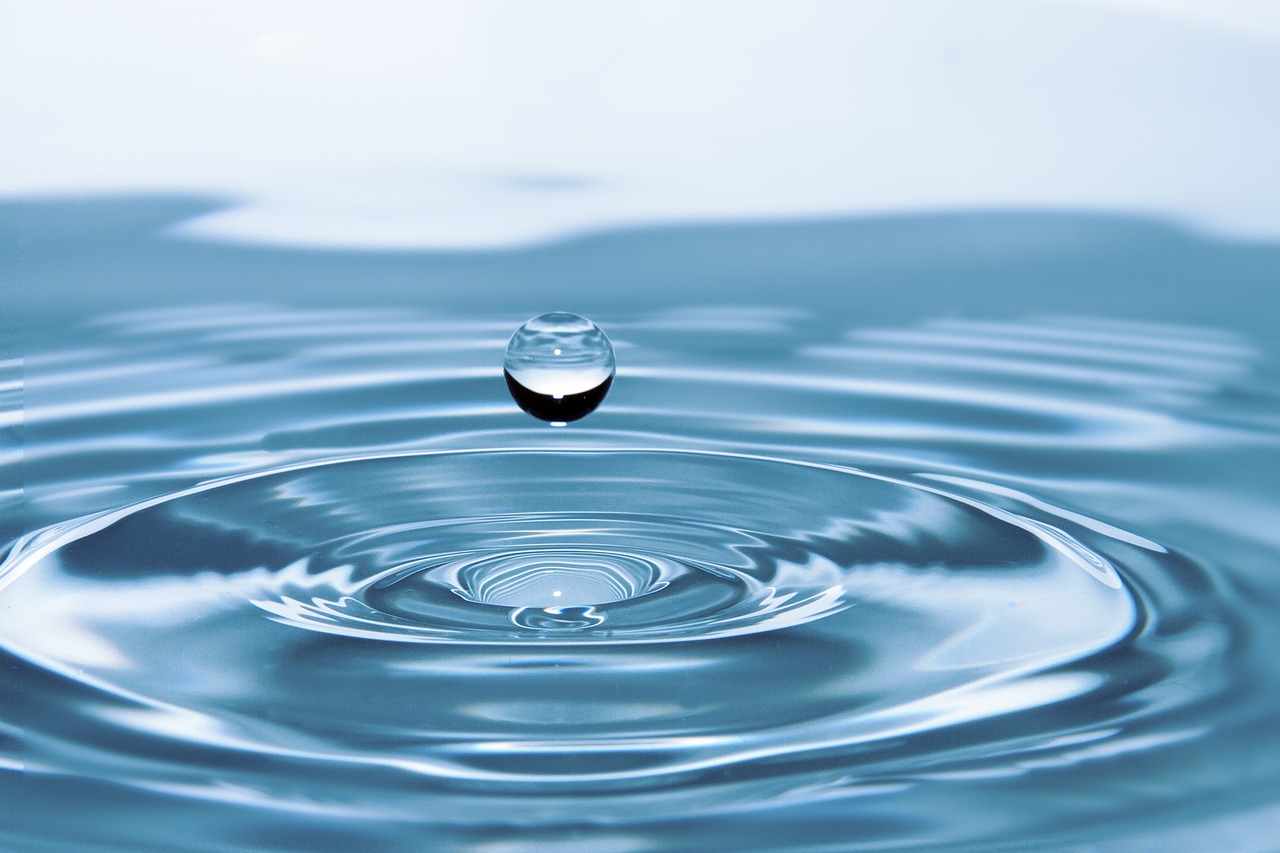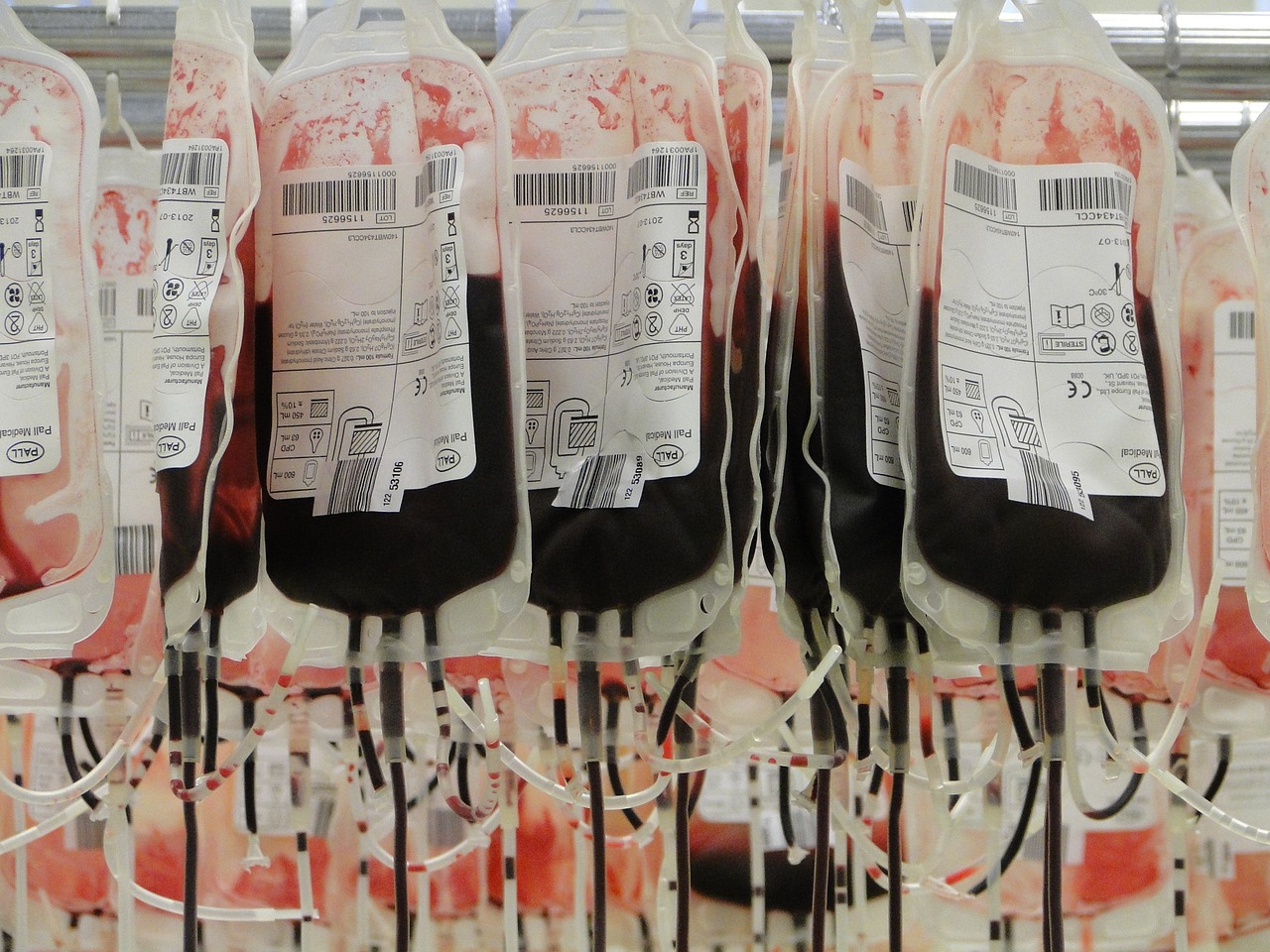This article explores the essential guidelines for safe water fasting, addressing common pitfalls and providing expert insights to ensure a successful and healthy fasting experience.
What is Water Fasting?
Water fasting is a practice where individuals abstain from all food and consume only water for a designated period. This method can vary in duration, from a single day to several days. Understanding the purpose and benefits of water fasting can help individuals approach it with the right mindset, enhancing their overall experience.
Benefits of Water Fasting
- Detoxification: One of the primary benefits of water fasting is the body’s ability to detoxify itself. During this period, the body can eliminate toxins and waste products, leading to improved health.
- Improved Metabolic Health: Water fasting can enhance insulin sensitivity and promote fat burning, which may contribute to weight loss and better metabolic function.
- Mental Clarity: Many individuals report increased focus and mental sharpness during water fasting, attributing this to reduced distractions from food.
Common Mistakes to Avoid While Water Fasting
Despite its benefits, water fasting can be challenging. Identifying and avoiding common mistakes is essential for a successful experience without adverse effects.
- Not Preparing Properly: Failing to prepare for a water fast can lead to discomfort and complications. Preparation involves gradually reducing food intake before the fast and ensuring proper hydration.
- Ignoring Hydration Needs: Staying adequately hydrated is crucial during a water fast. It’s important to monitor water intake and ensure that you are drinking enough to avoid dehydration.
Signs You Should Stop Fasting
While water fasting can be beneficial, it’s essential to recognize when to stop. Key signs that indicate it may be time to end your fast include:
- Physical Symptoms: Watch for symptoms like dizziness, extreme fatigue, or persistent headaches, which can signal the need to stop fasting.
- Mental and Emotional Indicators: Emotional well-being is just as important during fasting. If you experience severe irritability or anxiety, it may be time to break the fast.
Post-Fast Recovery Tips
Proper recovery after a water fast is vital to reap the benefits. Here are practical tips for safely transitioning back to regular eating habits:
- Reintroducing Food Gradually: Start with light, easily digestible foods like broths or smoothies. Gradually increase the complexity of your meals to avoid digestive issues.
- Hydration Post-Fast: Continue to prioritize hydration after a fast. Drinking plenty of water can help your body adjust back to a regular eating schedule.
By following these guidelines and being mindful of the common pitfalls associated with water fasting, individuals can ensure a safer and more effective fasting experience. Always consult with a healthcare professional before starting any fasting regimen, especially if you have underlying health conditions.

What is Water Fasting?
Water fasting is a practice that has gained popularity in recent years, particularly among those seeking to improve their health and well-being. It involves abstaining from all food and consuming only water for a designated period. This method of fasting is often undertaken for various reasons, including health benefits, spiritual growth, and detoxification.
The primary purpose of water fasting is to allow the body to enter a state of ketosis, where it begins to burn fat for energy instead of glucose. This process can lead to significant weight loss and improved metabolic health. However, understanding the implications of such a fast is crucial for anyone considering this approach.
One of the most significant benefits of water fasting is its potential for detoxification. During a fast, the body can focus on eliminating toxins and waste products that accumulate from processed foods and environmental factors. This natural cleansing process can enhance overall health and promote a sense of vitality.
- Improved Metabolic Health: Water fasting can lead to better insulin sensitivity and lower blood sugar levels, which are essential for reducing the risk of chronic diseases.
- Mental Clarity: Many individuals report heightened mental clarity and focus during fasting periods, attributed to the reduction of inflammation and the increase in brain-derived neurotrophic factor (BDNF).
- Cellular Repair: Fasting triggers autophagy, a process where the body removes damaged cells and regenerates new ones, which is vital for maintaining optimal health.
It’s important to approach water fasting with the right mindset and preparation. Individuals should consider their health status and consult with a healthcare professional before embarking on a prolonged fast. This ensures that they are aware of any potential risks and can better understand their body’s needs during the fasting period.
While water fasting can be beneficial, it is essential to recognize that it is not suitable for everyone. Pregnant or breastfeeding women, individuals with certain medical conditions, or those taking specific medications should avoid water fasting unless supervised by a healthcare provider.
In summary, water fasting is a powerful tool for health improvement, detoxification, and mental clarity. Understanding its purpose and benefits can help individuals approach it safely and effectively, ensuring a positive experience that aligns with their health goals.

Benefits of Water Fasting
Water fasting has gained popularity in recent years due to its potential health benefits. Many individuals are curious about how this practice can contribute to overall well-being. This article explores the , highlighting its effects on detoxification, metabolic health, and mental clarity.
Engaging in water fasting involves abstaining from all food and consuming only water for a designated period. This practice not only promotes physical health but also encourages mental discipline. Understanding the science behind these advantages can empower individuals to approach water fasting with informed expectations.
One of the primary benefits of water fasting is detoxification. During a fast, the body shifts its energy focus from digestion to cleansing. This process helps eliminate accumulated toxins and waste products. When food intake ceases, the liver and kidneys can concentrate on filtering out harmful substances. Research indicates that fasting can enhance liver function, leading to a more effective detoxification process.
Water fasting triggers autophagy, a natural process where cells eliminate damaged components. This cellular repair mechanism is crucial for maintaining optimal health and longevity. Studies have shown that autophagy can help protect against diseases, including cancer and neurodegenerative disorders. By promoting cellular regeneration, water fasting supports overall vitality.
Another significant advantage of water fasting is its potential for weight loss. When the body is deprived of food, it begins to utilize stored fat for energy, leading to fat burning. Additionally, fasting can enhance metabolic health by improving insulin sensitivity and regulating blood sugar levels. Understanding how metabolism functions during fasting is key to achieving weight loss goals effectively.
Many individuals report experiencing enhanced mental clarity during water fasting. This phenomenon can be attributed to several factors, including increased production of brain-derived neurotrophic factor (BDNF), which supports cognitive function. Furthermore, fasting may reduce inflammation in the brain, contributing to improved focus and concentration. As a result, individuals often find that they can think more clearly and perform tasks with greater efficiency while fasting.
Water fasting may also bolster the immune system. By reducing inflammation and promoting autophagy, fasting can lead to a more robust immune response. Some studies suggest that periodic fasting can improve the body’s ability to fight off infections and diseases. This immune enhancement is particularly beneficial for individuals looking to maintain their health during cold and flu seasons.
Research indicates that water fasting can positively impact heart health. Fasting may help lower blood pressure, reduce cholesterol levels, and decrease triglycerides. These factors contribute to a lower risk of cardiovascular diseases. By promoting heart health, water fasting can play a crucial role in overall wellness.
Beyond the physical advantages, water fasting can also offer spiritual and emotional benefits. Many individuals find that fasting provides an opportunity for self-reflection and personal growth. The practice encourages mindfulness and can lead to a greater sense of connection with oneself and the environment. This emotional clarity can be transformative, offering insights into one’s life and priorities.
In summary, the benefits of water fasting extend far beyond mere weight loss. From detoxification and cellular repair to enhanced mental clarity and emotional well-being, the advantages are numerous. By understanding the science behind these benefits, individuals can make informed decisions about incorporating water fasting into their health routines.
Detoxification Process
Water fasting has gained popularity as a method for detoxification, allowing the body to reset and rejuvenate itself. During a water fast, the body initiates a complex that is essential for eliminating accumulated toxins. This natural cleansing mechanism is not only vital for physical health but also contributes to mental clarity and emotional well-being.
When the body undergoes fasting, it begins to tap into stored energy reserves, primarily fat. As these fat stores are metabolized, toxins that have been stored in fat cells are released into the bloodstream. This process is crucial for detoxification, as it allows the body to flush out harmful substances. The liver plays a pivotal role in this phase by processing these toxins and preparing them for elimination through urine and sweat.
Additionally, during a water fast, the body shifts its focus from digestion to repair and maintenance functions. This shift allows for enhanced cellular repair mechanisms, including a process known as autophagy. Autophagy is the body’s way of cleaning out damaged cells, which can lead to improved cellular function and longevity. By promoting this cellular cleanup, water fasting can significantly contribute to overall health.
The benefits of detoxification during a water fast extend beyond physical health. Many individuals report experiencing heightened mental clarity and improved focus during fasting periods. This phenomenon can be attributed to the increased production of ketones, which serve as an alternative energy source for the brain. As the body transitions into a state of ketosis, cognitive functions can become sharper, leading to enhanced productivity and mental acuity.
Moreover, the detoxification process during water fasting can have profound effects on emotional health. As the body eliminates toxins, many people experience a sense of lightness and emotional release. This can lead to improved mood and a greater sense of well-being. The psychological benefits of a water fast should not be overlooked, as they are integral to the overall fasting experience.
However, it is essential to approach water fasting with caution and awareness. While detoxification can be beneficial, it is crucial to recognize the signs that may indicate the body is struggling. Physical symptoms such as dizziness, fatigue, or extreme hunger may suggest that it is time to break the fast. Listening to your body is vital to ensure a safe and effective fasting experience.
In conclusion, the detoxification process that occurs during a water fast is a powerful mechanism for enhancing health and well-being. By understanding how this process works and its myriad benefits, individuals can approach water fasting with the right mindset and preparation. Always consult with a healthcare professional before embarking on a water fast to ensure it aligns with your health needs and goals.
Cellular Repair Mechanisms
are vital for maintaining health and longevity. One of the most significant processes that occur during fasting is autophagy. This natural cellular mechanism plays a crucial role in cleaning up damaged components within cells, thereby promoting optimal function and resilience.
When the body undergoes fasting, it enters a state where it begins to conserve energy. In this state, the cells activate autophagy to break down and recycle cellular debris, including damaged proteins and organelles. This process is not only essential for cellular maintenance but also for preventing diseases associated with cellular dysfunction, such as cancer and neurodegenerative disorders.
Research indicates that autophagy contributes significantly to longevity. As we age, the efficiency of autophagy tends to decline, leading to an accumulation of damaged cellular components. By triggering autophagy through fasting, individuals can potentially slow down the aging process and enhance their overall health. Studies have shown that intermittent fasting can lead to improved markers of health, including reduced inflammation and enhanced metabolic function.
| Benefits of Autophagy | Description |
|---|---|
| Cellular Cleanup | Removes damaged proteins and organelles, ensuring cells function optimally. |
| Enhanced Longevity | May slow down the aging process by improving cellular health. |
| Disease Prevention | Reduces the risk of chronic diseases by maintaining cellular integrity. |
Moreover, autophagy is linked to improved metabolic health. During fasting, the body shifts its energy source from glucose to fat, which can lead to weight loss and improved insulin sensitivity. This metabolic shift is essential for individuals looking to manage their weight effectively while also benefiting from the cellular repair mechanisms that fasting promotes.
In addition to the physical benefits, fasting and the subsequent activation of autophagy can also enhance mental clarity. Many individuals report increased focus and cognitive function during fasting periods. This phenomenon may be linked to the body’s ability to prioritize energy use and eliminate distractions caused by digestion, allowing for sharper mental acuity.
However, it’s essential to approach fasting with caution. While autophagy has numerous benefits, not everyone may respond positively to fasting. Individuals with certain medical conditions or those taking specific medications should consult healthcare professionals before engaging in prolonged fasting practices. Additionally, ensuring proper hydration and preparing the body adequately for fasting can enhance the benefits of autophagy and minimize potential risks.
In summary, the process of autophagy triggered by fasting is a powerful mechanism for cellular repair and maintenance. By understanding and harnessing this process, individuals can potentially improve their health, enhance longevity, and promote overall well-being. As research continues to unveil the complexities of autophagy, it becomes increasingly clear that this natural process is a cornerstone of health optimization.
Weight Loss and Metabolism
Water fasting is an increasingly popular method for shedding excess weight and improving overall health. By understanding the intricacies of how metabolism functions during fasting, individuals can maximize their weight loss results and achieve their health goals more effectively.
During a water fast, the body undergoes significant metabolic changes. Initially, the body utilizes glycogen stores for energy, which are carbohydrates stored in the liver and muscles. Once these stores are depleted, typically within 24 hours, the body shifts into a state known as ketosis. In this state, the body begins to burn fat for fuel, leading to the breakdown of fat cells and resulting in weight loss.
How Metabolism Works During Fasting
- Fat Oxidation: The primary metabolic shift during fasting is the transition from glucose to fat oxidation. This process not only promotes weight loss but also enhances fat utilization.
- Hormonal Changes: Fasting triggers hormonal responses, including increased levels of norepinephrine and growth hormone. These hormones facilitate fat burning and preserve muscle mass, which is crucial for maintaining a healthy metabolism.
- Caloric Deficit: By abstaining from food, individuals naturally create a caloric deficit, which is essential for weight loss. This deficit forces the body to tap into its fat reserves for energy.
Understanding the Benefits of Water Fasting for Weight Loss
Water fasting not only aids in weight loss but also offers other metabolic benefits:
- Improved Insulin Sensitivity: Fasting can enhance insulin sensitivity, which is vital for regulating blood sugar levels and preventing weight gain.
- Enhanced Metabolic Rate: Short-term fasting has been shown to boost metabolic rate, allowing the body to burn more calories even at rest.
- Cellular Repair Processes: Fasting initiates autophagy, a cellular repair mechanism that removes damaged cells and regenerates new ones, promoting overall health.
Challenges and Considerations
While water fasting can lead to significant weight loss, it is essential to approach it with caution. Some individuals may experience challenges such as fatigue, dizziness, or irritability during the initial stages of fasting. These symptoms are often temporary and can be managed with proper hydration and rest.
Moreover, it is crucial to listen to your body. If you experience severe discomfort or adverse symptoms, it may be wise to consult a healthcare professional before continuing. Understanding your individual health status and needs is vital to ensure a safe fasting experience.
Final Thoughts
Water fasting can be an effective strategy for weight loss when approached correctly. By understanding the metabolic changes that occur during fasting, individuals can harness the power of fat burning to achieve their weight loss goals. Always remember to prioritize safety and listen to your body’s signals throughout the fasting process.
Mental Clarity and Focus
Many individuals who engage in water fasting report experiencing a remarkable increase in mental clarity and enhanced cognitive function. This phenomenon has garnered significant interest in both scientific and wellness communities, as the implications of improved focus can impact various aspects of daily life, from productivity to emotional well-being.
One of the primary reasons for this cognitive boost during water fasting is the ketogenic state that the body enters after a period of fasting. When food intake is restricted, the body begins to use fat as its primary energy source, converting it into ketones. These ketones serve as an efficient fuel for the brain, often leading to heightened mental acuity and sharper focus. Research indicates that ketones may have neuroprotective properties, which can further enhance cognitive performance.
Additionally, fasting is known to promote the release of brain-derived neurotrophic factor (BDNF), a protein that plays a crucial role in brain health. Increased levels of BDNF are associated with improved learning, memory, and overall cognitive function. The elevation of this protein during fasting periods suggests a biological mechanism through which fasting may enhance mental clarity.
Moreover, the process of fasting allows individuals to experience a break from constant food-related distractions. This mental break can lead to greater focus on tasks at hand, as fewer mental resources are allocated to food preparation and consumption. Many people find that during fasting, they can engage in deeper concentration on their work or creative pursuits, often leading to breakthroughs in problem-solving.
Furthermore, the act of fasting can instill a sense of discipline and mindfulness. As individuals become more aware of their eating habits and the effects of food on their bodies, they may also cultivate a greater awareness of their thoughts and mental processes. This enhanced mindfulness can contribute to improved focus and cognitive clarity, as distractions are minimized.
It’s important to note that while many report positive cognitive effects during water fasting, experiences can vary widely among individuals. Factors such as duration of the fast, individual health conditions, and previous fasting experiences can influence the degree of mental clarity achieved. Therefore, it is advisable for individuals to approach water fasting gradually and to listen to their bodies throughout the process.
In conclusion, the potential for enhanced mental clarity and focus during water fasting is supported by both anecdotal evidence and scientific research. The shift towards ketone utilization, the increase in BDNF, and the psychological benefits of mindfulness all contribute to this phenomenon. As more individuals explore water fasting, understanding these cognitive benefits can help them approach their fasting journey with informed expectations and a focus on both mental and physical health.

Common Mistakes to Avoid While Water Fasting
Water fasting, while beneficial, can be a daunting task for many. It is crucial to recognize and avoid common pitfalls to ensure a safe and effective fasting experience. Below, we explore some of these frequent mistakes and provide insights on how to navigate them successfully.
- Inadequate Preparation: One of the most significant mistakes individuals make is not preparing adequately for a water fast. Proper preparation involves gradually reducing food intake and choosing lighter meals in the days leading up to the fast. This approach helps to minimize discomfort and allows the body to adjust to the upcoming fasting state.
- Neglecting Hydration: Staying hydrated is vital during a water fast. Some people mistakenly believe that since they are not eating, they do not need to drink as much water. In reality, it is essential to maintain hydration levels to support bodily functions and avoid symptoms like headaches and fatigue. Aim to drink at least 2-3 liters of water daily, adjusting based on activity levels and climate.
- Ignoring Physical Signals: Listening to your body is crucial during a fast. Some individuals push through discomfort, thinking it is part of the process. However, signs such as dizziness, extreme fatigue, or nausea can indicate that the fast should be ended. Recognizing these signals can prevent potential health risks.
- Overexertion: Engaging in intense physical activities while fasting can lead to exhaustion. It is advisable to reduce the intensity of workouts and focus on gentle exercises, such as walking or stretching. This approach helps conserve energy and allows the body to focus on detoxification and healing.
- Rushing the Refeeding Process: After completing a water fast, individuals often make the mistake of immediately returning to their regular eating habits. This sudden transition can overwhelm the digestive system. Instead, it is best to reintroduce food gradually, starting with light, easily digestible options such as fruits or broths.
- Not Seeking Professional Guidance: For those new to water fasting or with pre-existing health conditions, seeking advice from a healthcare professional is essential. A medical expert can provide personalized recommendations and ensure that fasting is safe based on individual health needs.
By recognizing and avoiding these common mistakes, individuals can enhance their water fasting experience. Preparation, hydration, and listening to the body are key components that contribute to a successful fast. Remember, the goal of water fasting is not only to detoxify the body but also to promote overall well-being. With the right approach, water fasting can be a transformative experience.
Not Preparing Properly
for a water fast can significantly impact your overall experience and health. Many individuals jump into fasting without adequate preparation, leading to discomfort, fatigue, and even potential health risks. To ensure a smoother fasting experience, it is essential to adopt effective preparation strategies.
Firstly, understanding the purpose of your water fast is crucial. Are you fasting for detoxification, weight loss, or mental clarity? Clarifying your goals can help you prepare both mentally and physically. It is advisable to consult with a healthcare professional, especially if you have underlying health conditions.
- Gradual Transition: Before starting your fast, gradually reduce your food intake over a few days. This process, known as pre-fasting, helps your body adjust to the upcoming changes. Start by eliminating processed foods, sugars, and caffeine, which can lead to withdrawal symptoms if stopped abruptly.
- Hydration: In the days leading up to your fast, increase your water intake. Staying well-hydrated before you begin will help minimize feelings of hunger and fatigue during the fast. Aim for at least 2-3 liters of water daily.
- Nutrition: Focus on consuming nutrient-dense foods before your fast. Incorporate fruits, vegetables, whole grains, and lean proteins into your diet. This will provide your body with essential vitamins and minerals, supporting your overall health during the fasting period.
Additionally, mental preparation is just as important as physical readiness. Engage in mindfulness practices, such as meditation or yoga, to cultivate a positive mindset. This mental shift can help you cope with cravings and discomfort during the fast.
Another vital aspect of preparation is setting realistic expectations. Understand that experiencing hunger, fatigue, or irritability is common during the initial days of fasting. Acknowledging these feelings can help you remain focused on your goals and maintain a positive attitude.
Lastly, consider creating a support system. Inform friends or family about your fasting plans, so they can offer encouragement and understanding. Joining fasting groups or online communities can also provide valuable insights and motivation.
By taking the time to prepare properly for your water fast, you can significantly enhance your experience and minimize potential complications. Remember, preparation is key to a successful and fulfilling fasting journey.
Ignoring Hydration Needs
Staying adequately hydrated is crucial during a water fast. The body relies heavily on water for various functions, and during fasting, the need for hydration becomes even more pronounced. When you abstain from food, your body continues to lose water through sweat, urine, and even respiration. Therefore, monitoring your water intake is essential to maintain optimal health and well-being throughout the fasting period.
Understanding Hydration Needs
During a water fast, the absence of food means that you are not getting any hydration from solid sources. This makes it vital to ensure that you are drinking enough water. A general guideline is to consume at least 2 to 3 liters of water daily, but individual needs may vary based on factors such as activity level, climate, and body weight. It is important to listen to your body and adjust accordingly.
Signs of Dehydration
- Thirst: An obvious sign that your body needs more water.
- Dark Urine: A clear indicator of dehydration; ideally, urine should be light yellow.
- Fatigue: Feeling unusually tired can be a sign that you are not hydrated enough.
- Dizziness: This can occur if your body is not receiving adequate fluids.
Effective Ways to Monitor Hydration
Keeping track of your hydration levels can be done through various methods:
- Urine Color: As mentioned, checking the color of your urine can provide immediate feedback on your hydration status.
- Water Intake Tracking: Use a journal or an app to log your daily water consumption, ensuring you meet your hydration goals.
- Physical Symptoms: Regularly assess how you feel; if you notice any signs of dehydration, increase your water intake.
Tips for Staying Hydrated
Here are some practical tips to help you stay hydrated during your water fast:
- Set Reminders: Use alarms or apps to remind you to drink water regularly.
- Infuse Your Water: If you find plain water unappealing, consider adding slices of lemon or cucumber for flavor without breaking your fast.
- Drink Before Meals: If you’re planning to eat after your fast, drink a glass of water before your meal to ensure you’re hydrated.
In summary, maintaining proper hydration is essential during a water fast. By understanding your hydration needs, recognizing the signs of dehydration, and employing effective monitoring techniques, you can support your body in achieving the full benefits of fasting. Remember, your health should always come first, and staying hydrated is a key component of a successful water fasting experience.

Signs You Should Stop Fasting
Water fasting can be a powerful tool for detoxification and health improvement, but it is crucial to recognize the signs that indicate it may be time to stop. Understanding these signals can help ensure your safety and well-being during the fasting process. Below, we outline key indicators that suggest you should consider ending your fast.
While some discomfort is normal during a fast, certain physical symptoms should not be ignored. Here are some critical signs:
- Dizziness: Feeling lightheaded or faint can be a sign that your body is not receiving enough energy. This may indicate a need to stop fasting.
- Extreme Fatigue: If you experience overwhelming tiredness, it could be your body’s way of signaling that it needs nourishment.
- Persistent Nausea: Feeling nauseous for an extended period might indicate that your body is struggling to cope with the fasting state.
- Heart Palpitations: Irregular heartbeats or palpitations are serious symptoms that warrant immediate attention and suggest it’s time to break your fast.
Fasting can also impact your mental and emotional state. Pay attention to these signs:
- Increased Irritability: If you find yourself becoming easily frustrated or angry, it may be a sign that your body is under stress.
- Difficulty Concentrating: A sharp decline in focus or mental clarity can indicate that your brain is not getting the necessary nutrients.
- Heightened Anxiety: If you notice an increase in anxiety levels, it could be a sign that your body is signaling the need for food.
The length of your fast is also a critical factor. While some may successfully fast for several days, others may need to stop sooner based on their individual health conditions. Here are some guidelines:
- Short-Term Fasts: Generally, a fast lasting 24 to 48 hours is considered safe for most healthy individuals.
- Extended Fasts: Fasting beyond 72 hours should be approached with caution and ideally under medical supervision.
If you have pre-existing health issues, such as diabetes or heart conditions, it’s essential to monitor your body closely during a fast. Consult with a healthcare provider before starting, and be vigilant for any signs of distress:
- Low Blood Sugar: Symptoms like shakiness or excessive sweating can indicate dangerously low blood sugar levels.
- Chest Pain: Any chest discomfort should be treated as a medical emergency.
Recognizing these signs is vital for maintaining your health during water fasting. If you experience any of the symptoms mentioned above, it is advisable to stop fasting and consult with a healthcare professional. Listening to your body is the first step towards a safe and healthy fasting experience.
Physical Symptoms to Watch For
When engaging in water fasting, it is crucial to be aware of the body’s signals. Physical symptoms can serve as important indicators that it may be time to stop fasting. Recognizing these signs can help prevent serious health issues and ensure a safe fasting experience. This section will explore various symptoms to watch for during a water fast.
- Dizziness: One of the most common signs that fasting may need to be halted is dizziness. This sensation can arise from low blood sugar levels or dehydration. If you experience frequent dizziness, it is essential to listen to your body and consider breaking the fast.
- Extreme Fatigue: While some fatigue is normal during a fast, extreme tiredness can indicate that your body is not coping well with the fasting process. If you find it challenging to perform daily activities or feel excessively weak, it may be time to stop.
- Heart Palpitations: An increased heart rate or palpitations can be alarming. This symptom may signal that your body is under stress. If you notice this happening, it is advisable to end your fast and consult a healthcare professional.
- Nausea or Vomiting: Experiencing nausea or vomiting can be a sign of dehydration or electrolyte imbalance. If these symptoms occur, it is crucial to stop fasting and rehydrate.
- Severe Headaches: While mild headaches can be common during fasting, severe headaches can indicate that your body is struggling. Persistent headaches should not be ignored, as they may signal the need to stop.
Understanding these symptoms is vital for maintaining health and safety during a water fast. It is important to remember that fasting affects everyone differently, and individual responses can vary widely. Therefore, it is essential to be in tune with your body and its needs.
In addition to physical symptoms, one should also consider mental and emotional indicators that may suggest it’s time to break the fast. Feelings of anxiety, irritability, or overwhelming stress can also indicate that fasting is no longer beneficial for you. Listening to both your physical and emotional well-being is key to a successful fasting experience.
Always consult with a healthcare professional before beginning any fasting regimen, especially if you have pre-existing health conditions or concerns. Being informed and prepared can help ensure a safe and effective fasting journey.
Mental and Emotional Indicators
Fasting can be a transformative experience, but it is essential to recognize that mental and emotional well-being plays a crucial role during this time. While many people focus on the physical aspects of fasting, the psychological effects can significantly impact the overall experience. This section explores various indicators that suggest it may be time to break your fast for the sake of your mental health.
- Increased Anxiety or Irritability: Many individuals may experience heightened levels of anxiety or irritability during prolonged fasting. If you notice that your mood is significantly affected and you find yourself feeling more on edge than usual, it could be a sign to stop fasting.
- Difficulty Concentrating: Although some report enhanced mental clarity during fasting, others may struggle with focus and concentration. If you find it increasingly challenging to complete tasks or engage in conversations, it may be time to reconsider your fasting approach.
- Feelings of Isolation: Fasting can sometimes lead individuals to withdraw from social interactions, which may exacerbate feelings of loneliness or isolation. If you notice a significant decline in your desire to connect with others, this emotional signal should not be ignored.
- Persistent Fatigue: While some fatigue is expected during fasting, persistent and overwhelming tiredness can be a red flag. If your energy levels do not improve over time, it might indicate that your body needs nourishment.
- Negative Thought Patterns: Fasting can sometimes lead to negative thinking or self-criticism. If you find yourself engaging in destructive thought patterns, it may be a sign that your mental health is at risk, prompting the need to end the fast.
Recognizing these mental health indicators is vital for maintaining a balanced approach to fasting. It is essential to listen to your body and mind, as they often provide the most accurate signals regarding your well-being.
Moreover, it is crucial to understand that everyone’s experience with fasting is unique. What works for one person may not work for another. Therefore, it is important to approach fasting with a personalized mindset that considers both physical and emotional needs.
Incorporating mindfulness practices, such as meditation or gentle yoga, can also enhance emotional well-being during fasting. These practices can help ground you and provide a sense of calm, making it easier to navigate the emotional ups and downs that may arise.
Ultimately, your mental health should be a priority throughout the fasting process. If you experience any of the aforementioned indicators, it is wise to reflect on your current state and consider breaking your fast. Remember, the goal of fasting is to promote overall health, and that includes both body and mind.

Post-Fast Recovery Tips
Proper recovery after a water fast is vital to reap the benefits and ensure your body adjusts safely to regular eating habits. Transitioning back to solid food can be challenging, but with the right approach, you can enhance your health and well-being.
Understanding the Importance of Recovery
After a period of fasting, your digestive system needs time to readjust. A sudden return to regular meals can lead to discomfort, digestive issues, and even more serious health problems. Therefore, it is crucial to follow a structured recovery plan.
Reintroducing Food Gradually
- Start with light, easily digestible foods such as broths, smoothies, or pureed fruits and vegetables.
- Allow your body to adapt over the first few days by consuming small portions.
- Gradually increase the complexity and quantity of your meals as your digestive system reawakens.
Recommended Foods for Post-Fast Recovery
| Food Type | Benefits |
|---|---|
| Broths | Hydrating and soothing for the digestive system. |
| Fruits | Rich in vitamins and easy to digest. |
| Vegetables | Provide essential nutrients; opt for cooked options initially. |
| Whole Grains | Gradually reintroduce for fiber and energy. |
Hydration Post-Fast
Continuing to prioritize hydration after a fast is essential for recovery. Here are some tips:
- Drink plenty of water throughout the day to stay hydrated.
- Consider electrolyte-rich drinks to replenish lost minerals.
- Avoid caffeinated and sugary beverages, as they can irritate your system.
Listening to Your Body
During the recovery phase, it is crucial to pay attention to your body’s signals. If you experience any discomfort, such as bloating or nausea, consider slowing down the reintroduction of foods. This is a time for your body to heal, and pushing too hard can lead to setbacks.
Maintaining a Balanced Diet
Once you’ve successfully transitioned back to regular eating, focus on maintaining a balanced diet that includes:
- Fresh fruits and vegetables
- Whole grains
- Lean proteins
- Healthy fats
Incorporating a variety of foods ensures that your body receives the necessary nutrients for optimal health.
Conclusion
Recovery after a water fast is a crucial phase that should not be overlooked. By reintroducing food gradually, staying hydrated, and listening to your body’s needs, you can maximize the benefits of your fasting experience while ensuring a smooth transition back to regular eating habits.
Reintroducing Food Gradually
After completing a water fast, is crucial to avoid digestive discomfort and ensure a smooth transition back to your regular diet. This process allows your digestive system to adjust and helps prevent common issues such as bloating, cramping, and nausea.
The first step in this transition is to start with liquid foods. Broths, smoothies, and juices can provide essential nutrients without overwhelming your digestive system. These options are easier to digest and allow your body to absorb necessary vitamins and minerals effectively. It’s advisable to consume these liquids for the first day or two post-fast.
Once your body has adjusted to liquid foods, you can begin to incorporate soft foods into your diet. Foods such as mashed bananas, applesauce, and yogurt are excellent choices. These foods are gentle on the stomach and provide the necessary energy without putting too much strain on your digestive system.
As you progress, consider adding lightly cooked vegetables and grains. Steamed zucchini, carrots, or rice can be introduced gradually. It’s essential to monitor how your body reacts to these foods. If you experience any discomfort, revert to softer options and give your body more time to adjust.
After a few days of consuming soft foods, you can slowly reintroduce solid foods. Start with easily digestible proteins, such as eggs or fish, and gradually add more complex foods like legumes and whole grains. It’s crucial to listen to your body and pay attention to any signs of digestive distress.
During this transition period, hydration remains vital. Continue to drink plenty of water and consider herbal teas to aid digestion. Staying hydrated helps your body process the reintroduced foods more efficiently and can alleviate potential discomfort.
It’s also beneficial to keep meals small and frequent during this period. Eating smaller portions can prevent overwhelming your digestive system and allows for easier absorption of nutrients. Aim for five to six small meals throughout the day rather than three large ones.
Finally, be patient with yourself. The length of time it takes to fully transition back to a regular diet can vary from person to person. Some may feel ready to resume their normal eating habits in a week, while others might take longer. Listen to your body and adjust your pace accordingly.
In summary, reintroducing food after a water fast should be a gradual process, starting with liquids, then soft foods, and finally solid foods. This careful approach helps avoid digestive issues and supports overall health as you return to your regular eating habits.
Hydration Post-Fast
After completing a water fast, hydration plays a crucial role in the recovery process. It is essential to replenish lost fluids and support your body’s transition back to regular eating. This section outlines effective strategies for maintaining optimal hydration levels in the post-fast phase.
During a fast, your body undergoes various changes, including a decrease in fluid intake and potential electrolyte imbalances. Therefore, rehydrating effectively is not just about drinking water; it involves a careful approach to restore balance and promote overall well-being.
- Start Slowly: After a period of fasting, begin by sipping small amounts of water. This gradual approach helps your body adjust without overwhelming your digestive system.
- Incorporate Electrolytes: Consider adding electrolytes to your water, such as sodium, potassium, and magnesium. These minerals are vital for cellular function and can help prevent dehydration, especially if your fast was prolonged.
- Monitor Fluid Intake: Keep track of your daily water consumption. Aim for at least 2-3 liters of water in the first few days post-fast, adjusting based on your activity level and climate conditions.
- Consume Hydrating Foods: Incorporate fruits and vegetables with high water content, such as cucumbers, watermelon, and oranges. These foods not only hydrate but also provide essential vitamins and minerals.
It is also important to listen to your body. Signs of dehydration can include dry mouth, fatigue, and dark urine. If you experience these symptoms, increase your fluid intake immediately.
In addition to physical hydration, consider the emotional aspect of recovery. The transition from fasting can be overwhelming, and staying hydrated can help alleviate feelings of anxiety or discomfort. Engaging in calming activities, such as meditation or gentle yoga, can further enhance your recovery process.
As you continue to hydrate, pay attention to how your body responds. Everyone’s needs can vary, so adjust your fluid intake based on your personal experience. Remember, the goal is to support your body as it readjusts to regular eating patterns.
In summary, prioritizing hydration post-fast is essential for a smooth recovery. By following these best practices, you can ensure that your body remains well-hydrated, aiding in the overall healing process and enhancing your well-being.
Frequently Asked Questions
- What should I drink during a water fast?
During a water fast, the only thing you should consume is water. It’s essential to stay hydrated, so make sure to drink plenty of it. Some people also opt for herbal teas or lemon water, but it’s best to stick with plain water to avoid any complications.
- How long can I safely water fast?
The duration of a safe water fast can vary based on individual health conditions. Generally, a fast can last anywhere from 24 hours to several days. However, it’s crucial to listen to your body and consult a healthcare professional before embarking on a longer fast.
- Can I exercise while water fasting?
While light activities like walking may be fine, intense workouts are generally not recommended during a water fast. Your body needs energy to function, and exercising too hard can lead to fatigue or other health issues.
- What are the signs that I should stop fasting?
If you experience dizziness, extreme fatigue, or severe headaches, it may be time to stop your fast. Always pay attention to your body and prioritize your health over the fasting period.
- How should I break my fast?
Breaking your fast should be done gradually. Start with small portions of easily digestible foods like broth or fruits. This helps your digestive system adjust and prevents discomfort.












